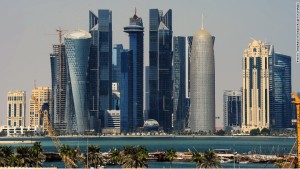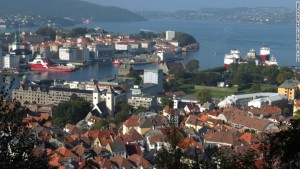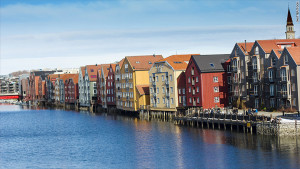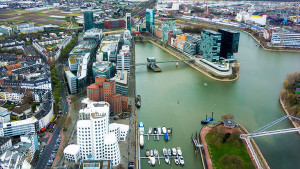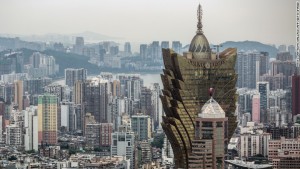Implementation of the new electricity tariff, known as Multi-Year Tariff Order (MYTO 2015) which started February 01, 2016 has caused mix reactions.
The Nation gathered that some stakeholders faulted the introduction of such a regime at a time they believe, economic activities were down. Yet, others hailed the removal of the N750 compulsory fixed charge.
President, Manufacturers Association of Nigeria (MAN), Dr. Frank Udemba Jacobs, spoke on the inappropriateness of such policy. He told The Nation that MAN members were shocked at the action of Nigerian Electricity Regulatory Commission (NERC) and the distribution companies (DISCOS).
He said: “We have a court injunction restraining them from any increase. We had prayed the court to ask NERC to revert to the previous Multi-Year Tariff Order (MYTO). We argue that the new tariff regime will increase manufacturing cost and harm the local industries”.
According to him, manufacturers must be exempted in the implementation of the new tariff.
He confirmed that committee mandated at a meeting between MAN and NERC’s Acting Chairman, Dr. Anthony Akah, to work out an out-of-court settlement, has swung into action.
He said: “We insist on no tariff increase. The out-of-court settlement is to enable discussions that would lead to the matter being settled out o f court.”
On what he meant by out-of-court settlement, Dr. Jacobs said: “It means stopping the tariffs as directed by the court. We don’t expect to have an increase at the commencement of the new order today.
“We are hopeful that NERC won’t want to go ahead with the tariffs because of the subsisting court order in our favour. They can’t do that until they vacate the court order. We don’t expect anybody to charge us anything higher than the previous tariffs. Anything to the contrary would be contempt of court.”
In an earlier interview, the Director-General of the Lagos Chamber of Commerce and Industry (LCCI), Muda Yusuf, recalled the argument of NERC and the Minister of Power, Mr. Babatunde Fashola.
He said there was an argument that the proposed tariff review of the power sector reform was critical to the attainment of steady power supply.
Yusuf further stated that it was argued that the purpose was to make electricity tariff cost-reflective to attract sustainable investments in the sector.
According to him, it would amount to an exercise in futility faulting the argument, especially in the light of the clamour by the citizenry for a private sector-driven power sector.
He argued that no matter how high the new tariff may be, it will still be cheaper than individual firms or households providing electricity through generators powered by diesel, petrol and LPFO.
Yusuf, however, caution against making consumers to pay for inefficiency or corruption.
“It is important to evaluate the elements of the current costs especially the integrity of procurement processes and other operational expenditure under the current dispensation. The risk of bloated costs exists and should be addressed”, he argued.
He maintained that pricing, although fundamental in the power delivery chain, was only one component, noting that other issues such as the gas availability, security of gas infrastructures; adequacy of investment in gas infrastructure; security and adequacy of the transmission lines.
Yusuf listed other issues as the huge indebtedness by the Ministries, Departments and Agencies (MDAs) to the DISCOs and the general framework to mitigate the risk of investment in the sector.
“All these need to be sorted out in order to inspire the confidence of investors,” he said.
On the scrapping of the fixed charge, he commended it, but advised that the provision of meters to consumers should be accelerated to put an end to the phenomenon of estimated billing.
Meanwhile Consumer Protection Office (CPC), Lagos office has restated its commitment to monitor the implementation, as it will ensure rights of consumers are protected.
Head of the CPC office in Lagos, Mr. Joshua Nggada, told The Nation that prior to the commencement of the new regime, it was inundated with complaints from individuals and communities, particularly those under the Ikeja Electricity Distribution Company (IKEDC).
He said the complaints, which bordered on bad transformers, estimated billing, indiscriminate increase in electricity bills, non-supply of meters, mass disconnections and fixed charge (now removed under the new regime), were promptly forwarded to the relevant DISCO for resolution.
Nggada, however, clarified that the Council did not get any complaint from any of the groups said to be challenging the decision of the DISCOs and the Nigerian Electricity Regulatory Commission (NERC) to raise electricity tariff.
According to him, the CPC had always advised DISCOs to always engage their consumers before implementing any increase, saying that the Council had earlier launched an investigation into the high cost of electricity by DISCOs, with a view to putting an end to it.
At a recent meeting in Abuja with officials of DISCOs, the Director-General of the Council, Mrs Dupe Atoki, said there had been an increase in complaints by electricity consumers.
At the meeting convened to look at ways of ensuring that no electricity consumer was short-changed, Mrs. Atoki noted that the CPC would not hesitate to sanction any DISCO found guilty of the allegations brought against it.
- Rexinews
- The Nation
